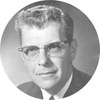
Answering Objections to Catechism Preaching Part 2
The following article has been adapted from the 1986 edition of the Mid-America Journal of Theology.
The dislike of catechetical preaching stems not alone from some people's attitudes. Preachers may well have to bear their share of the blame.
It cannot be denied that some sermons of this kind are dull, pedantic, and even boring to the extreme. They may be so poorly structured or preached that no one knows what is being said. Some also seem to use the catechism only as a springboard to dive into a murky pool of their own ideas, which sustain little connection with what they have promised to explain and apply. Others have been known to preach the same sermons with the same themes and divisions year after year. Such warmed-over fare will hardly whet the appetite of even the most longsuffering congregation.
To be sure, there are longsuffering pastors who suffer much unfair criticism for their work; there are also longsuffering congregations whose spiritual rations are less than adequate for even the most modest growth in the knowledge and grace of our Lord.
But these are not objections to catechetical sermons as such. The fault here lies not with the material but with its preparation and presentation. The most fascinating subject soon becomes dark and dull when taught by someone who has not mastered the material or shows little enthusiasm for it. Of this, Reformed synods have been keenly aware. Even now, they mandate inquiry at the time of annual church visitation into whether these sermons give evidence of diligent study on the pastor's part. All the above "problems" (if such exist) can, with goodwill and genuine effort, be in large measure corrected.
Much more serious is the case against such sermons, of course, when Reformed ministers no longer believe what the catechism affirms.
Such a situation arose in the early days of the Remonstrant controversy, which agitated the churches in the Netherlands for some decades. Not a few pastors who sympathized with the views of Jacobus Arminius (1560-1609) showed their distaste in a variety of ways. Some used the Heidelberg Catechism rarely in the course of their preaching. Others argued for revisions without following proper ecclesiastical procedure. Still, others, insisting that they were Reformed, took matters into their own hands. Two pastors of the Gouda congregation wrote their own catechism, at first distributed only in hand-written form. With their friends, they argued for freedom to preach the Word as they understood the Bible rather than as creed and catechism officially taught.
This Gouda Catechism appeared on the scene about 1607. It was exceedingly brief, consisting of only some thirty questions and answers. Most of the latter appeared as direct quotations from Scripture without explanation. Thus anyone who employed it could expound the passages as he pleased. All distinctive evangelical Reformed affirmations were conspicuous by their absence. No mention was made, for example, of man's total depravity in consequence of the sin of our first parents, of the two natures of our Lord, of justification by faith alone, and predestination. By this, they demonstrated an unwillingness to keep the solemn pledge made when they had signed the Form of Subscription.
Against these high-handed tactics, the Reformed soon raised their voice in protest.
They realized that such a catechism easily allowed for the infiltration of Pelagian, Socinian, and other humanistic notions into the congregation. Repeatedly the matter was brought for adjudication to provincial synods but to no avail. Not until the Synod of Dordt (1618-19), which took disciplinary action against the Remonstrants, were the underlying issues for a time resolved.
What is at stake should be crystal clear to all who belong to Reformed churches, which still mandate that one sermon every Lord's day shall be preached on "the sum of doctrine" contained in this creed. Here, "ordinarily" does not mean once-in-a-while according to the preacher's whims or the people's wishes.
These churches claim to be "confessional." Solemnly they affirm repeatedly that their creeds are completely subordinate to Holy Scripture as the only rule for faith and life. But all holding office in their congregations have declared "sincerely and in good conscience before the Lord" that they "heartily believe and are persuaded that all the articles and points of doctrine contained in the Confession and Catechism of the Reformed Churches, together with the explanation of some points of the aforesaid doctrine made by the National Synod of Dordrecht, 1618-19, do fully agree with the Word of God" (Form of Subscription in the Psalter Hymnal, 1959).
On that basis, they pledge "diligently to teach and faithfully to defend the aforesaid doctrine, without either directly or indirectly contradicting the same by our public preaching or writing." To implement and regulate this, also for the instruction of all, the Church Order [of the URCNA] prescribes faithful catechetical preaching.
No one in the churches having made a profession of the Reformed religion—least of all ministers of the word, elders in the congregations, and teachers in their schools—have the freedom to ignore, deny, or contradict these standards.
To do so is dishonest. It insinuates the lie into Christ's church called to manifest itself as a "pillar and foundation of the truth" (1 Tim. 3:15). It breaks faith with every sister congregation and, worst of all, with the Lord before whose face the promise was made.


P.Y. De Jong (1915-2005) was one of the founding members and former professor at Mid-America Reformed Seminary.
Recent articles




